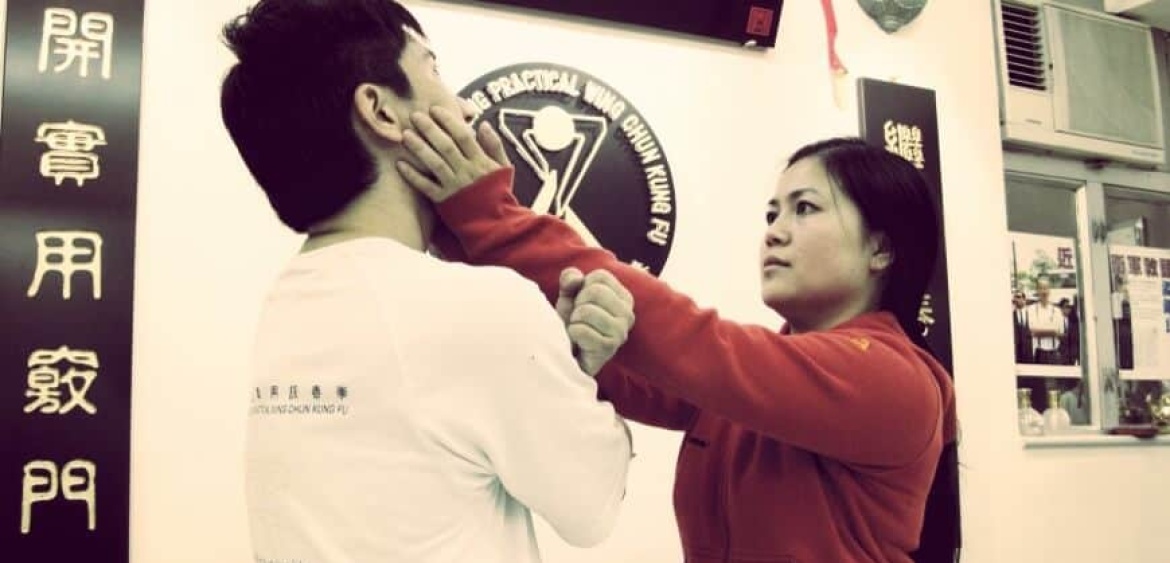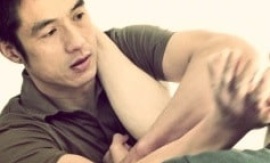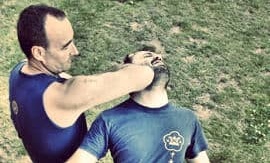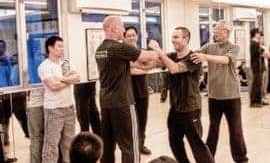
WHETHER IT’S A LEGEND OR NOT, WE HAVE ALL HEARD THAT OUR ART WAS SUPPOSEDLY CREATED BY A WOMAN. HOWEVER, IT IS STILL VERY RARE TO SEE WOMEN REACH HIGH LEVEL OF SKILLS IN OUR BELOVED ART. ONE SUCH EXCEPTION IS SIFU PUI YEE, A WOMAN WHO HAS DEDICATED HER ENTIRE LIFE TO THE ART.
Pui Yee is a closed-door student of Grandmaster Wan Kam Leung, as well as a Licensed Instructor and the International Coordinator of Wan Kam Leung Practical Wing Chun. She has been assisting Grandmaster Wan in most of his overseas seminars and private classes since 2007.
Pui Yee is also currently the Head Instructor at Practical Wing Chun Central, a Senior Instructor at the Practical Wing Chun HQ in Hong Kong and a Freelance Instructor at Practical Wing Chun Shanghai.
Tell us about your martial arts journey.
I grew up in Denmark, but have always stayed connected to Chinese culture through my parents and Chinese friends. I love watching Hong Kong Gung Fu movies and that was really what inspired me to start training martial arts.
I was introduced to Wing Tsun when I was 15 and I had no idea about the differences between various martial arts styles, but I quickly became fascinated by Wing Tsun. Even at that age, I already saw the logic and efficiency of the art, but my passion for it was also largely due to my first teacher, Sifu Morten Ibsen, who was a great inspiration to me.
I trained for ten years at the Wing Tsun HQ in Copenhagen, which at that time was one of the biggest Wing Tsun schools in the world. I became a Licensed Instructor and also the General Manager of the academy.
In 2007, I travelled to Hong Kong and Mainland China visiting different masters to get a deeper understanding of Wing Chun’s heritage, different interpretations of the system and to practise with other lineages. In Hong Kong, I visited Sifu Wan Kam Leung and I was extremely impressed by his skills, knowledge and glowing personality.
The Chinese are generally more reserved and conservative, but he was the exact opposite. Wan Sifu was very open-minded and took the time to explain the theory behind his Practical Wing Chun, which impressed me even more. I started training at his school but still took the opportunity to visit other masters throughout Hong Kong and Mainland China.
I feel very lucky that I was able to meet so many highly skilled masters at that time as some of them have sadly passed away since. It was a very difficult decision at the time, but I decided to follow Sifu Wan Kam Leung’s style of Wing Chun. I spent much time travelling to and from Hong Kong to learn and train Practical Wing Chun, but I eventually decided to move to Hong Kong permanently.
How it is different to learn Wing Chun as a woman, and what kind of difficulties have you faced?
I think women, in general, learn a bit faster because having less power forces us to use our technique over strength at a very early stage of training. However, one must work hard to build a strong foundation and put in a lot of effort, regardless of gender.
I do feel that I have had many positive experiences learning and training as a woman that I otherwise would not have had if I were a man. I was always picked when giving an example of how one cannot use force against force, but rather force must be deflected.
As a woman, one must always be aware of one’s limits. Learning Wing Chun is for protecting oneself. A woman may have the element of surprise when facing an attacker, as the attacker may not expect a woman to be skilled in such a way, but one should be mindful that there is always a difference between men and women. Not that a woman cannot fight and defeat a man, but practising Wing Chun does not automatically mean a woman can fight any skilled male practitioner in any of the different martial arts.
If you look at sports like Western Boxing, participants are divided into weight and gender and this applies in virtually all sports, not just combat sports. This is not a comment on skill; rather it is simply a reflection of the reality of the physical differences between men and women. All things being equal, a man will generally hold a physical advantage over a woman. Unfortunately, sometimes even good instructors fail to see this.
Have you ever experienced some form of sexism being a female practitioner? If so, how did you react?
I have, and I think it will always happen. I’d like to point out though that most people, men or women, respect you for what you do, and want to praise you rather than put you down. With that being said, you will still meet people who think that you are less capable simply because you are a woman. When I was younger, it made me frustrated, but nowadays, I don’t really bother with such people. Episodes like that happened throughout my learning process and even continued when I began teaching. As my Sifu always says, “So what if you beat a woman? No one will think you are a great man, and losing to one will really just put shame on yourself.”
What do you think is the difference in teaching as a female Sifu?
So far, I have had mostly good experiences. Most people are supportive and the fact that you have a female instructor will attract more female students, which is generally a minority in martial arts. Most of the time I am teaching general classes though, but I also teach children’s classes and women’s classes. Women’s classes are a niche market and as a female instructor, my strength is obviously here. Wing Chun is known for being created by a woman, where techniques overcome power, so being a female practitioner makes it even more convincing. It might be that some students prefer a male instructor but so far, I have not experienced that at all.
Many Sifus often use the slogan “Techniques over Power”, but many fail to deliver what they claim. How important is technique and the understanding of the physics behind Wing Chun principles?
It is always difficult not to use strength and power if you readily have a lot of both. Teaching a strong person to let go of using power is quite a challenge. Power is not useless, but it should be timed and when delivered, it should not be held back in the body. When that is understood, even a powerful person can see that Wing Chun is based on techniques and not vast amounts of brute force. People who practice Wing Chun understand this and replacing strength with technique is an ongoing process for most people.
Wing Chun is a system based on economy of movements, centrelines, angles and techniques, which makes it just as unique as a street fighting or self-defence system. It is not dependent on either age or gender, which is the real strength of Wing Chun. That’s why technique over power is so important in Wing Chun.
It seems to me that there is a deficit of quality in Wing Chun out there, and most of it seems to be because of a lack of understanding of structure. Why do you think that is?
I think there are several reasons. Wing Chun is not only a martial arts system but also a business for some people. Some people might have learnt a few years and then began to teach without fully understanding the art. Moreover, their Sifu might not have been very skilled either. So, while some schools make sure that the quality of the instructors and students stays high, there will always be some who don’t.
I think there will always be some very skilled practitioners around to serve as role models for others. Such people will always bring Wing Chun to higher levels that inspire the rest of us. Therefore, while I agree that in general there is a lack of quality, I also believe that there are also very skilled practitioners that are proving Wing Chun’s effectiveness.
How important is conditioning and physical power in Wing Chun?
Wing Chun is not about physical power, but conditioning oneself can still benefit your training. Depending on the type of person you are, there are many ways to condition oneself. For some, it might be enough to condition oneself with exercises related to Wing Chun only. There are many exercises in Wing Chun solely for this purpose, such as Chi Sau, San Sau, wall bag training, Long Pole and Knives training. For others, additional exercises might be beneficial. If a person is very stiff, adding Yoga training can be beneficial too. If the person is very thin and weak, some body workout might improve the person’s general health, which is also beneficial for his Wing Chun training. It depends on each individual’s circumstances and choice of exercise.
There are few other women trying to emerge in the Wing Chun world. What would you suggest to them in order to make it through these tough environments?
Enjoy it! Don’t give up easily. Wing Chun will benefit you in many ways. It will greatly improve your confidence, give you skills to project yourself and benefit you in everyday life. Work hard and have fun!



















